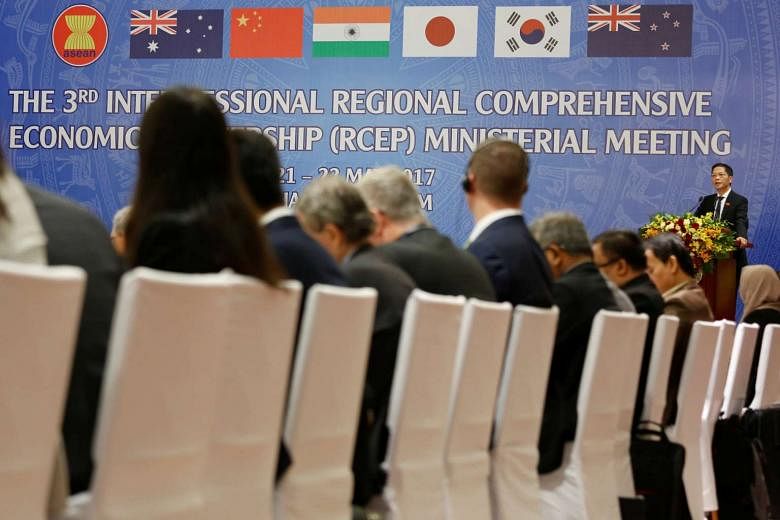Asian trade ministers yesterday met to discuss the China-backed free trade deal known as the Regional Comprehensive Economic Partnership (RCEP), but disagreements have reportedly surfaced over the level of tariff cuts.
The talks took place as part of the Asia-Pacific Economic Cooperation (Apec) forum in Hanoi.
The RCEP, a 16-nation free trade agreement which comprises China, India, Japan, Australia, New Zealand, South Korea and the 10 Asean members, has not had a smooth ride so far.
The trade deal has gone though 17 rounds of talks since 2013, but hit snags along the way and missed a 2015 deadline for completion.
According to Reuters, officials involved in the talks yesterday said a new target to complete the discussion stage by year end may be hard to meet, given disagreements over several issues.
India, for one thing, is reluctant to give up on tariffs, they told the news agency.
"They are concerned that major tariff elimination will cut revenue and their competitive position, especially against China," said one official, who did not want to be identified as the talks were private.
Another official also said India's position posed the biggest challenge in the latest ministerial talks.
Others said that freedom of movement was another potential sticking point.
"We are making progress but there is still a long way to go," New Zealand Trade Minister Todd McClay told Reuters. "There is a renewed desire to find a way to a high-quality outcome. But it is going to take a lot of hard work to get it done by the end of the year."
The RCEP has been seen as a priority for the regional partners, especially after the United States pulled out of the Trans-Pacific Partnership (TPP), a massive pact that includes many of the same partners as RCEP, but not China.
However, on Sunday, the remaining 11 signatories of the TPP met on the sidelines of the Apec forum and said they would work towards reviving the deal.
Mr Fred Burke, managing partner of Baker McKenzie Vietnam, told The Straits Times that the announcement by the so-called "TPP-11" that they will explore going ahead with the pact without the US does not necessarily preclude progress on RCEP.
However, he noted that usually, the RCEP talks tend to get going when the TPP talks start to lag.
"Whether this is a matter of bandwidth or tactics may vary from time to time, but businesses in the region would mostly welcome having both agreements get across the finish line, because it is very much a case of 'the whole is bigger than the sum of its parts' when the complementarities of the two agreements produce even greater benefits than would be the case with either agreement alone," he said.
Mr Burke said it might even be possible that the TPP will cross the finish line first, given that the RCEP talks include negotiations with giant economies such as India and China.


